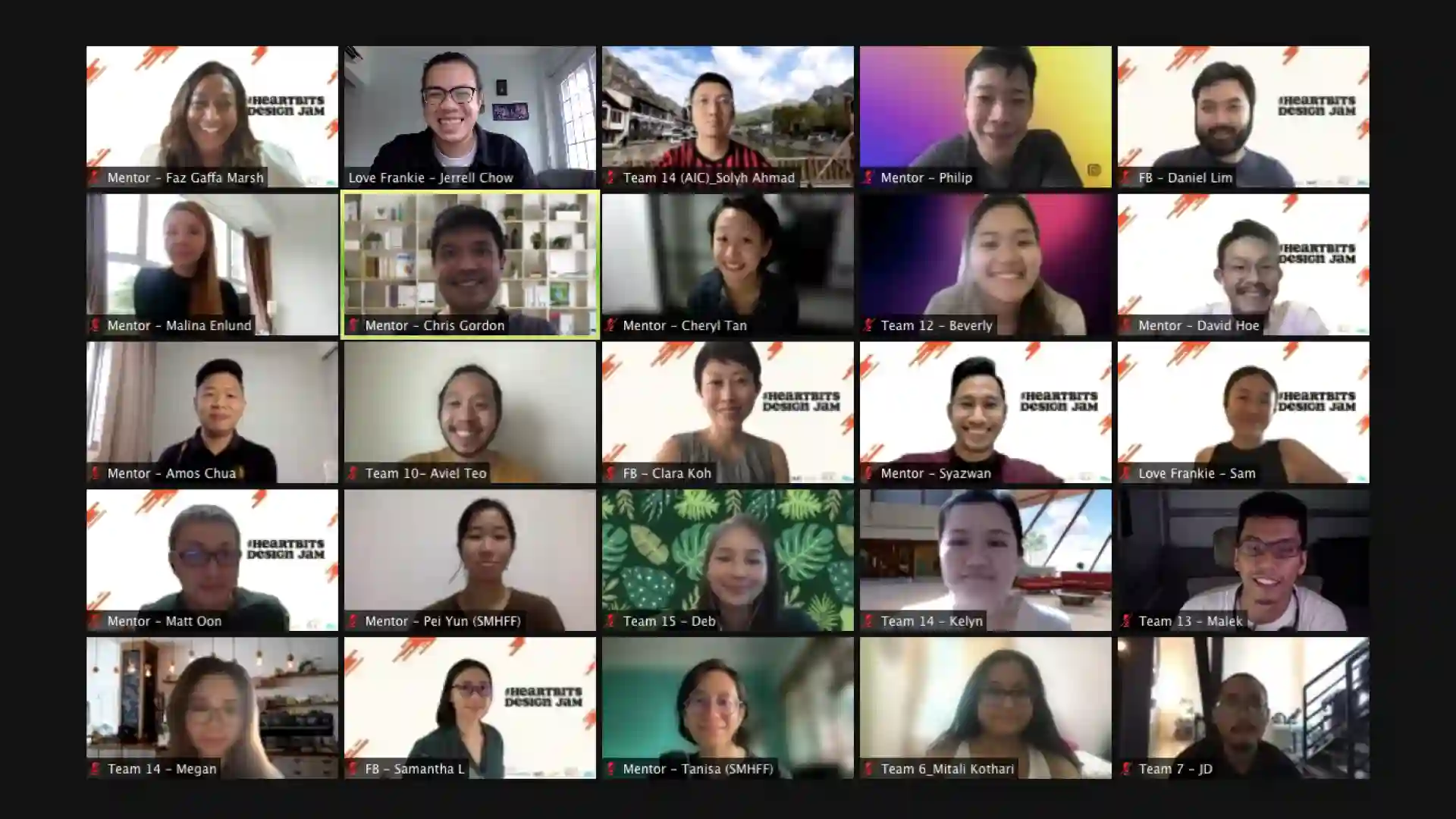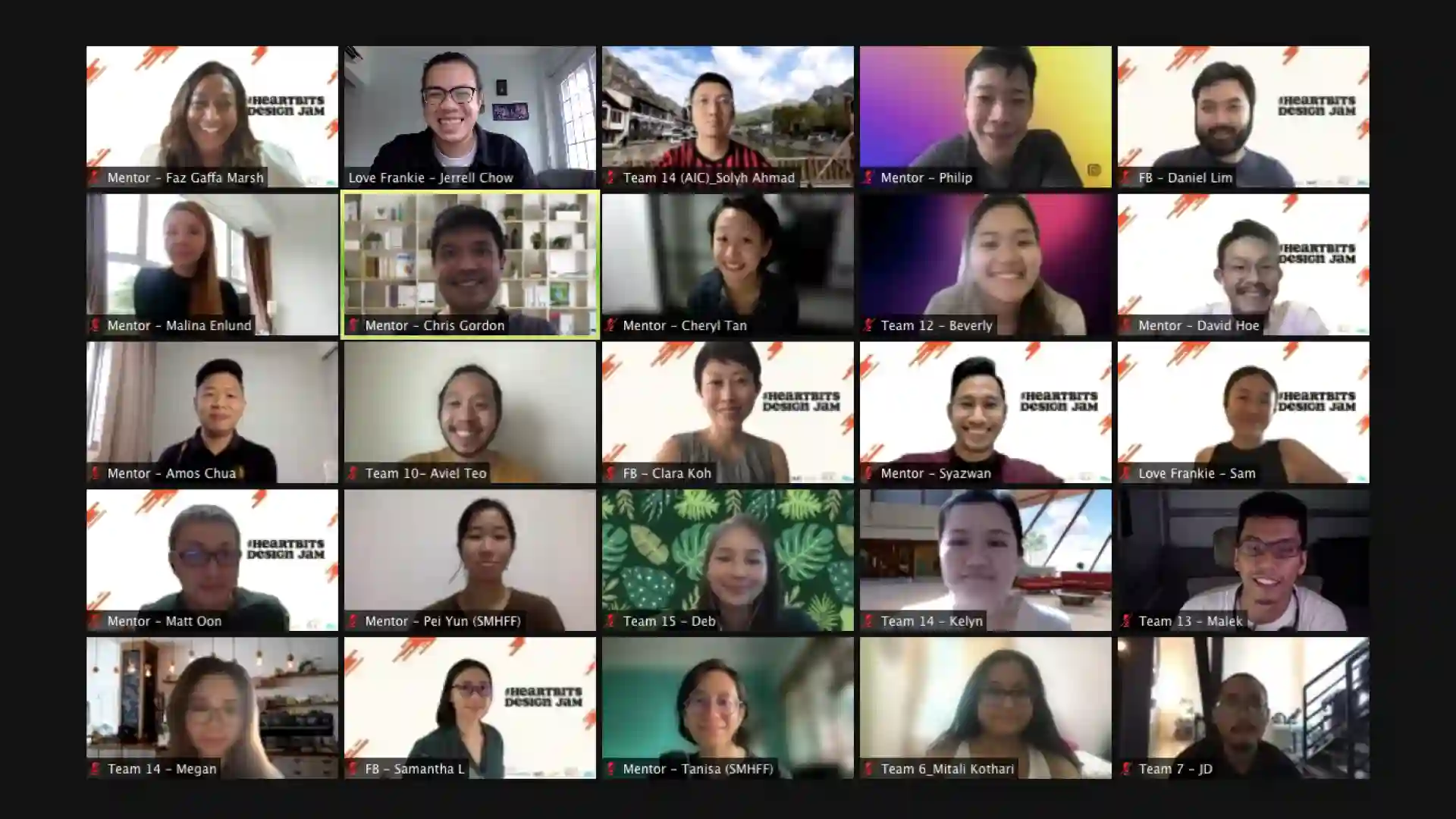It’s undeniable that the internet and social media platforms have made us - both friends and strangers - more connected than ever.
Need an update on your friends’ life milestones? Want to join a meet-up with people in your area who share your interests? Want to learn and experience a new culture from the other side of the world?
A quick scroll on social media platforms will catch you up in no time; in mere seconds, a search online will give you give you some insights into where your tribe might hang out; while a few taps on your smartphone and you will be transported to another country. The online realm can be a great space to work, play and connect, but it can also be an unkind place where trolls, bullies and keyboard warriors behave cruelly towards others. Research has shown that while the pandemic has increased our screen time as we stay home more often, it can also amplify social comparisons and give rise to unrealistic expectations and ideals.
The result? An increase in mental health and well-being issues such as anxiety, depression, ADHD, eating disorders and addictions.
Social technology company Meta wants to address these issues - an area that they have long championed - with the help of its users and the wider community. In particular, Meta was looking to team up with the most avid users of their platforms: youths.
Together with Young ChangeMakers, a programme under the National Youth Council (NYC), #heartBits Design Jam was launched in July. The project was conceived in 2020, as a rallying call to all youths to share ideas that can make the Internet a safe, inclusive space, while developing peer-led solutions that address pressing issues in cyber wellness.
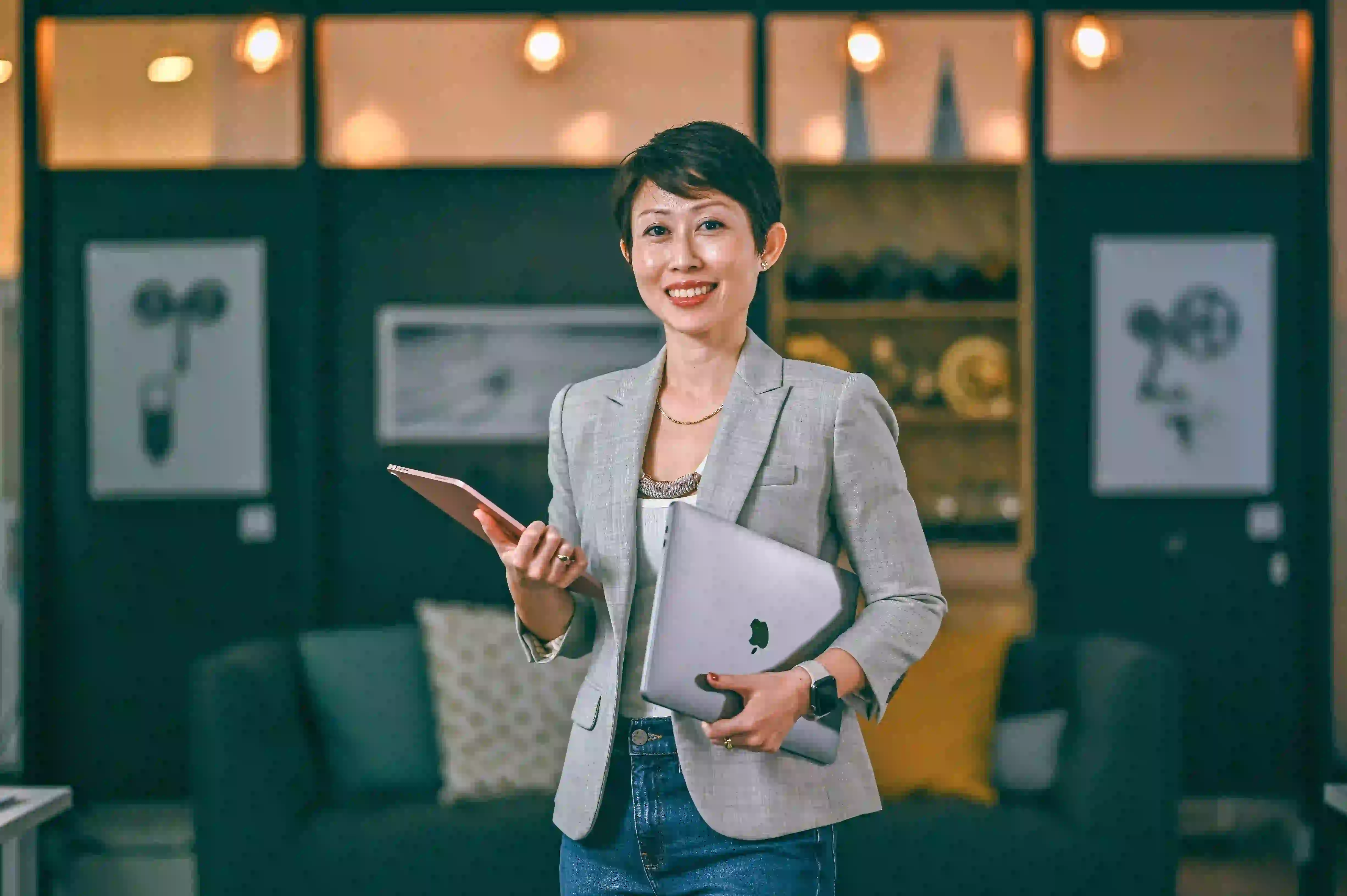
Ms. Clara Koh, Meta’s Head of Public Policy for Singapore and ASEAN
Clara Koh, Meta’s Head of Public Policy for Singapore and ASEAN, says youths were the focus as this group can be an influential force and possibly be ambassadors advocating for cyber wellness among their peers.
“A young person hearing from another young person is more impactful than hearing it from parents, teachers or the government. They want to hear it from someone who can relate to them and speak their language.”
The goals Meta wants to achieve is reflected in the programme’s name, Heartbits. Clara explains how the programme name came about.
“We chose this name because it sounds like ‘heartbeat’. ‘Heart’ represents the human element and ‘bit’ is the area of technology, the basic unit of computing. It’s a reminder that as much as we create things with the hard skills of technology, we must think about the humans using them. We want people to use technology in meaningful ways and not just focus on hard skills,” she says.
Calls for entries started in June and the programme was open to all Singaporeans and permanent residents aged between 15 and 35 years old.
According to Clara, the broad age range for the #heartbits Design Jam allowed for a diverse range of perspectives from students to millennials in the workforce, and even young parents.
“(Working with youths) offers the opportunity for really interesting ideas to come from different lenses. A lot of youths are online, and they are passionate about mental well-being and cyber wellness. What we’re trying to do is to support that passion with the scaffolding, financial resources and mentorship to bring their projects to fruition.”
To get them started, the #heartBits Design Jam team put forth five challenge statements. Centred on the community and vulnerable groups, the statements are:
- Help communities and individuals feel safer and more confident to express themselves online.
- Empower people to create a positive online experience, by building a community of support and empathy for greater mental well-being and cyber wellness.
- Say no to victim-blaming and shaming and create a supportive environment for victims of online sexual abuse.
- Take a stand against online abuse and empower individuals to protect and defend themselves and others from it.
- Create conversations around growing up in a digital world start at home - Encourage parents to model and promote healthy digital usage.
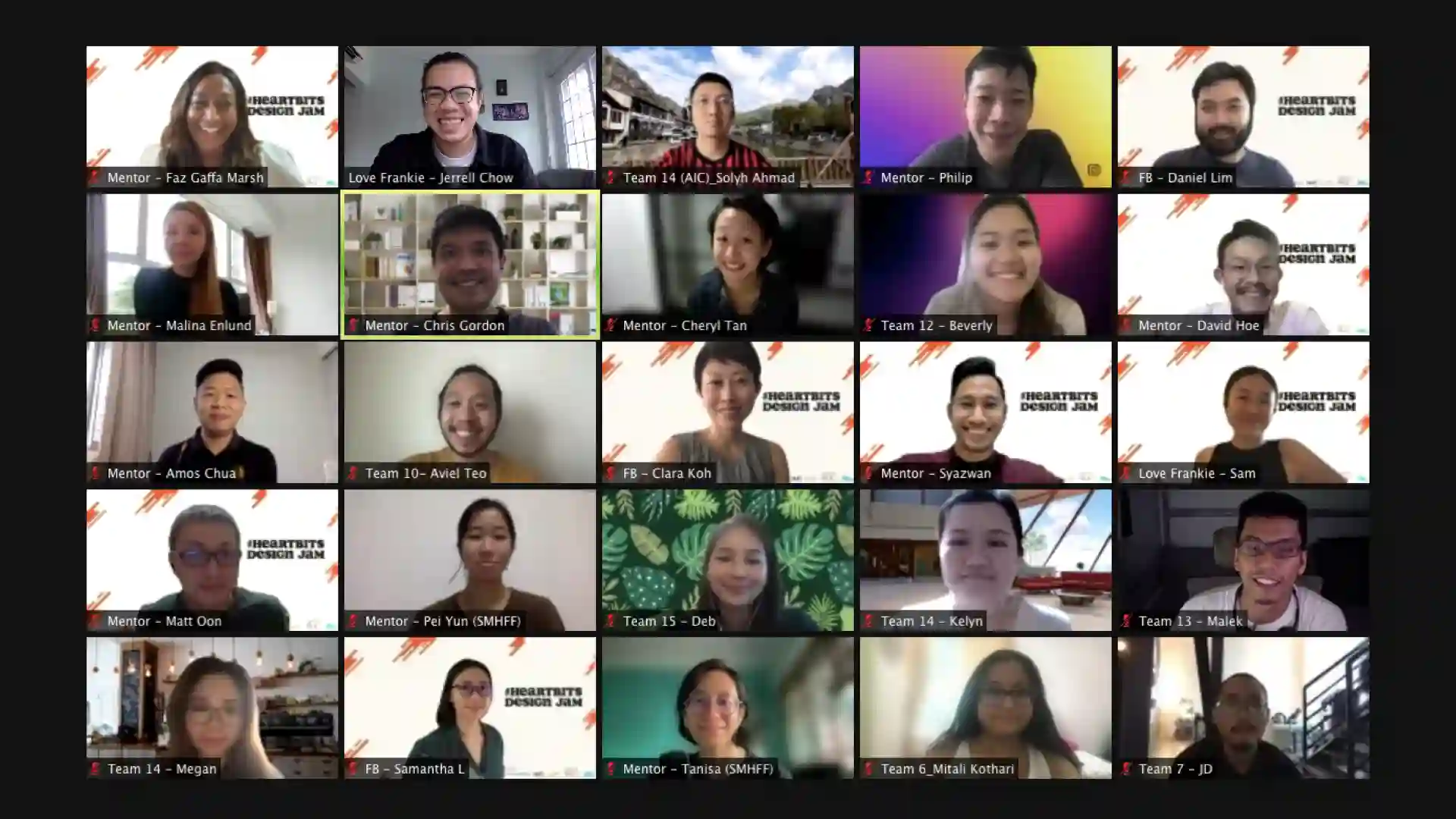
Teams and their mentors during their virtual consultation clinics
Image: Meta
The project kicked off for the 12 teams of youths with workshops and consultation clinics conducted by mentors from various sectors, including youth social worker Amos Chua who promotes mental health wellness on digital platforms; economist David Hoe, founder of various social empowerment programmes that enable social mobility; Faz Gaffa-Marsh, a mother who started the mental wellness community, mysafesphere, as well as representatives from the Meta global office.
In August, the teams pitched their ideas at a virtual Open Mic session, proposing a range of initiatives that would help different groups, from children to the neglected elderly. This was done in front of a panel of esteemed judges that included Minister-of-State Mr Tan Kiat How, various industry experts and their team mentors.
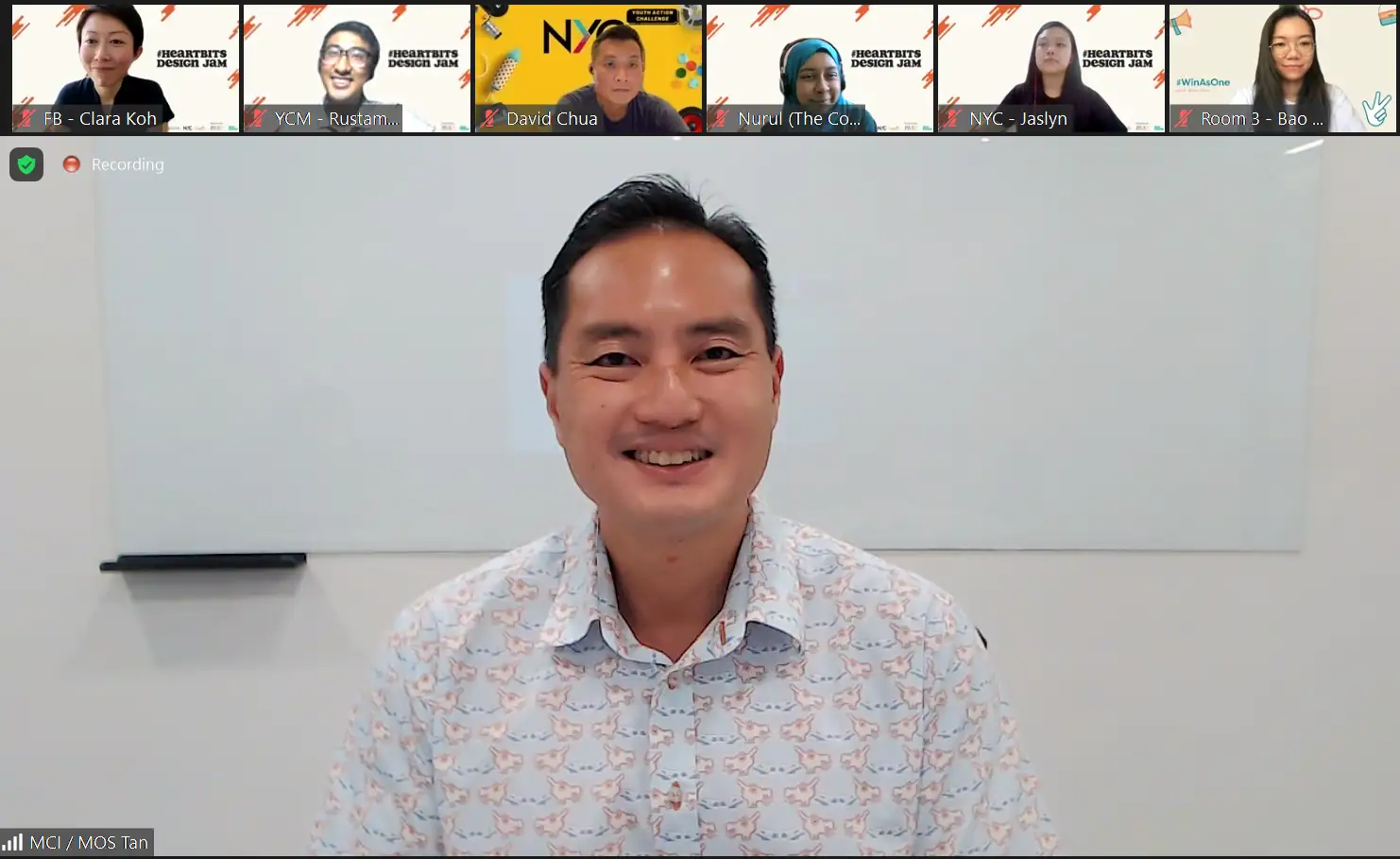
Minister-of-State Mr Tan Kiat How at the Open Mic session
Image: Meta
The projects were then assessed on various factors including how it would benefit society, how well it addresses a challenge statement, feasibility of execution, as well as its outreach and development potential. Five teams were picked and awarded with $4,000 worth of seed funding to turn their proposals into reality.
An outstanding project that caught the attention of the judges was a team that proposed using music as a segue to topic of mental wellness. Anchored by a song writing challenge and supported by a series of workshops and a virtual concert, the event titled “Unplugged” looks into addressing mental health stigma in an accessible and light-hearted manner.
Another team created a social media campaign titled, More Than “I’m Good”, with the aim of normalising mental health check-ins, and to build a community that embraces vulnerability, especially when the question “How are you?” is asked.
University students Lin Yutong and Tanya Lim, who are both 19, want to address feelings of imposter syndrome felt by those aged between 15 to 24. They hope to work with partners to destigmatise the issue and create a welcoming and inclusive environment online. Their project was also picked to receive funding.
They credited their mentors for their achievements. As Yutong, who is studying at the London School of Economics, puts it, “Without their guidance, we wouldn’t have been able to make it far.”
Tanya Lim, a student at King’s College London, points to the real-world experiences that they were able to learn from their mentors. “During our consultations with our mentors and workshops ahead of the Open Mic pitch, they could pinpoint flaws in our project quickly and brainstorm solutions to resolve the problems with us.”
Meanwhile, the mentors were as excited to work with the youths and commended them for their proactive drive to help their peers.
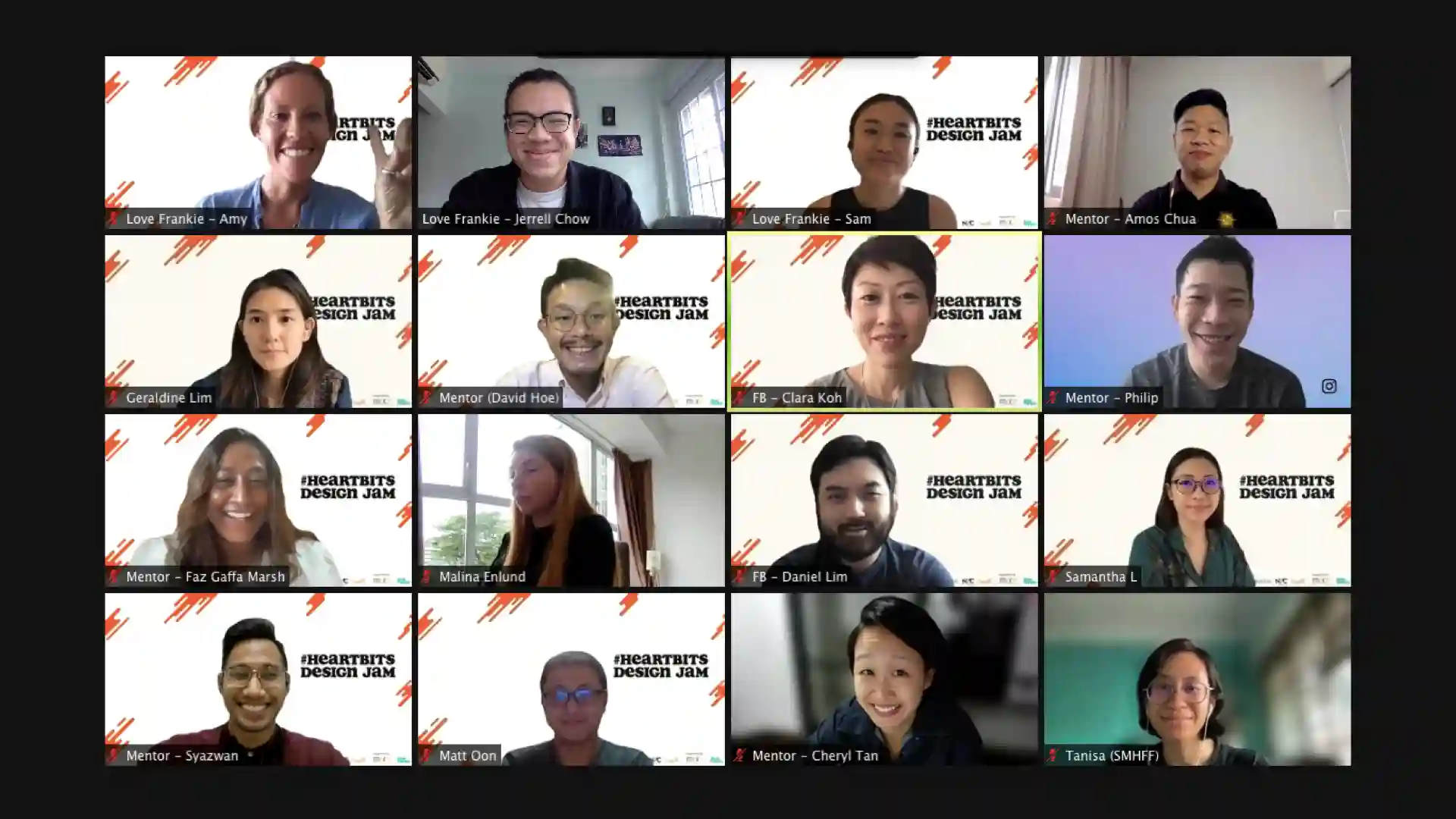
Mentors with the participants during a virtual session
Image: Meta
Philip Chua, APAC Head of Public Policy for Instagram, says that while social media platforms can push for safer spaces online, a community effort to be kind and protect the vulnerable is necessary. And youths, he adds, have much to contribute to the solutions.
“At Meta, we work continuously to ensure that people feel safe to express themselves. We have seen and want to support the passion and creativity within the Singapore community. The #heartbits projects exemplify just that.”
This #heartbits Design Jam is another concerted effort, amongst a list of programmes initiatives by Meta, to protect the mental health and well-being of Internet users.
The social network platform also works with other organisations like TOUCH Community Services to reach out to seniors and lower-income families. Earlier this year, Meta also supported non-governmental organisations (NGOs) which tackles topics mental well-being to upskill and better connect with their online audience. The participants from these NGOs went through a ‘boot camp’ with a creative agency to learn how to create effective campaigns to share their messaging and resources.
Globally for Meta, both the Facebook and Instagram platforms have put in measures to better protect users.
If a user types words like ‘depression’ or ‘anxiety’ into the search bar, a Facebook page prompt appears to ask if the user needs support. Tips, helpline numbers and resources are provided, while there is also an option to talk to a trusted friend.
Meta has also added more resources on Facebook, from mental health guides from experts to its Emotional Health Resource Center to help people cope with feelings like anxiety and depression that have arisen as a result of the pandemic.
This year, Meta took a stance against hate speech on Instagram, announcing that it would be enforcing stricter penalties for people who continually send abusive messages by disabling their accounts. It provided users more autonomy to determine who interacts with their account by giving them the options to filter comments and messages, and switch off DMs from people who do not follow them.
Clara says that the safety and well-being of users are “paramount”. This protection comes in three forms: designing policies to ensure safe usage, incorporating tools such as privacy settings to help users take control of their digital footprint and exposure, and partnering with the community and organisations to create collective solutions.
Involving users and the community might not be seen as an obvious collaboration, but Clara says, “It’s equally as important that while we are building a platform with policies and tools, we need to connect with people who use them and organisations that have the on-ground experiences. We will continue to invest and support causes that help all Singaporeans feel excited, empowered and enriched by digital technologies.”
There are many ways you can stay safe and well online or get your own project on mental health initiatives going:
- Access the resources to take care of your mental health here: https://www.facebook.com/emotional_health
- Inspired to help others in your community go digital but don’t know where to start? We’re here to help. Find out more at Digital for Life.












